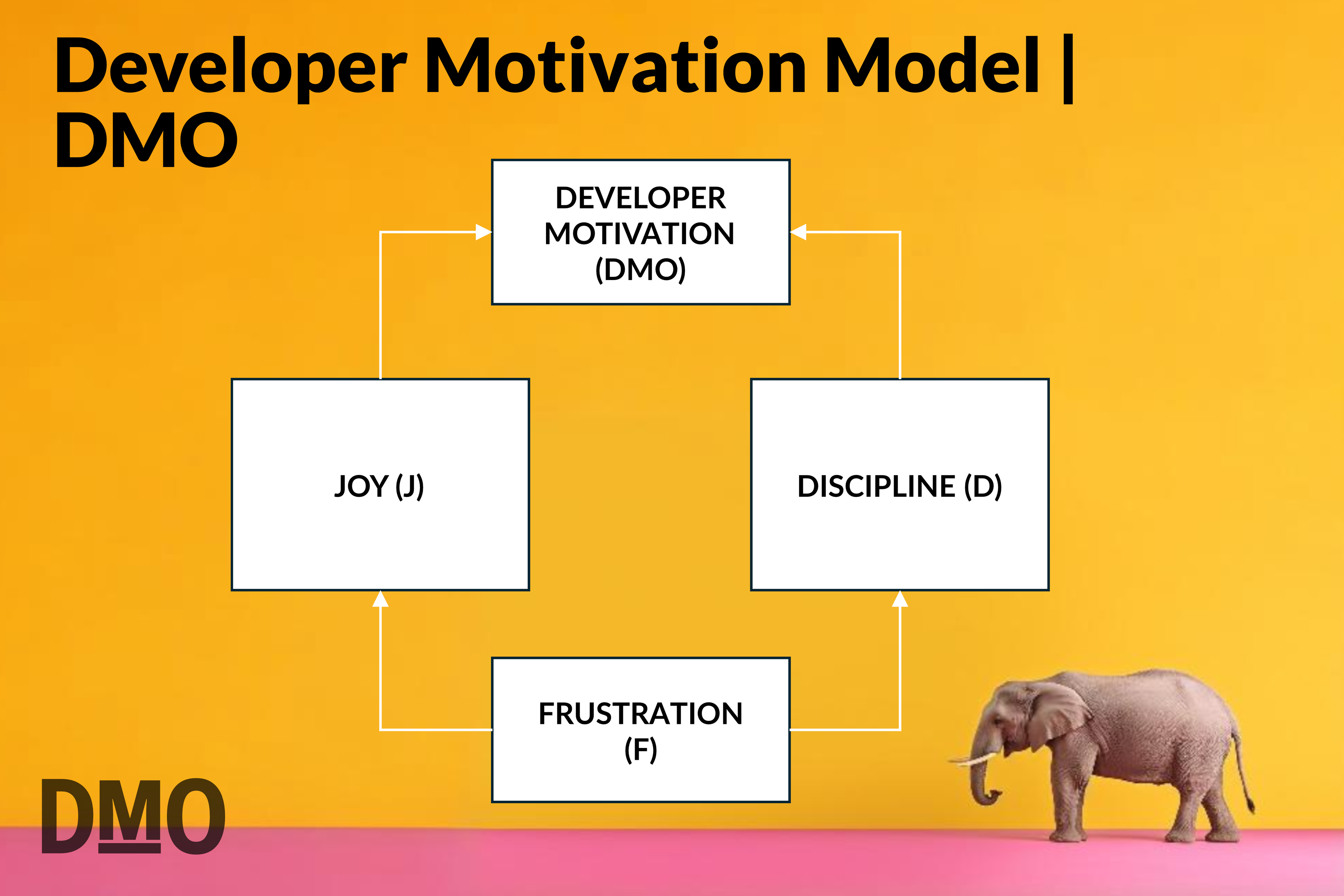DMO vs other motivation frameworks
The DMO Developer Motivation model puts the developer right center. It explains how developers are doing tasks by themselves (motivation). The core to the model is
Motivation = Joy + Discipline - Frustration

Other Motivation Frameworks
Many motivation frameworks have been developed over time.
Some examples of motivation frameworks
- Taylor – Scientific Management
- Alderfer – ERG Theory
- Herzberg – Motivators and Hygiene Factors
- Mayo – Teamwork and Human Relations
- McClelland – Needs for Achievement, Autonomy and Power
- Skinner – Reinforcement
- Adams – Equity
- Vroom – Expectancy
- Locke – Goal-Setting
- Maslow – Hierarchy of Needs and Wants
- Pink – Autonomy, Mastery and Purpose
- Deci and Ryan – Self-Determination Theory (SDT)
How does DMO (Developer motivation) differ?
The main difference is, DMO is centered around developers and does not want to explain general motivation.
Second, motivation is when people are doing tasks by themselves, without being force by threat. People are considered motivated if they do tasks and unmotivated if they don’t do tasks. In DMO it is not important what tasks they do.
Third, it assumes developers have physical security in the form of high income a job demand. This way factors of other motivation theories do not come into effect.
Last, as DMO is developer-centered, it assumes the right job environment with, for example, personal progress.